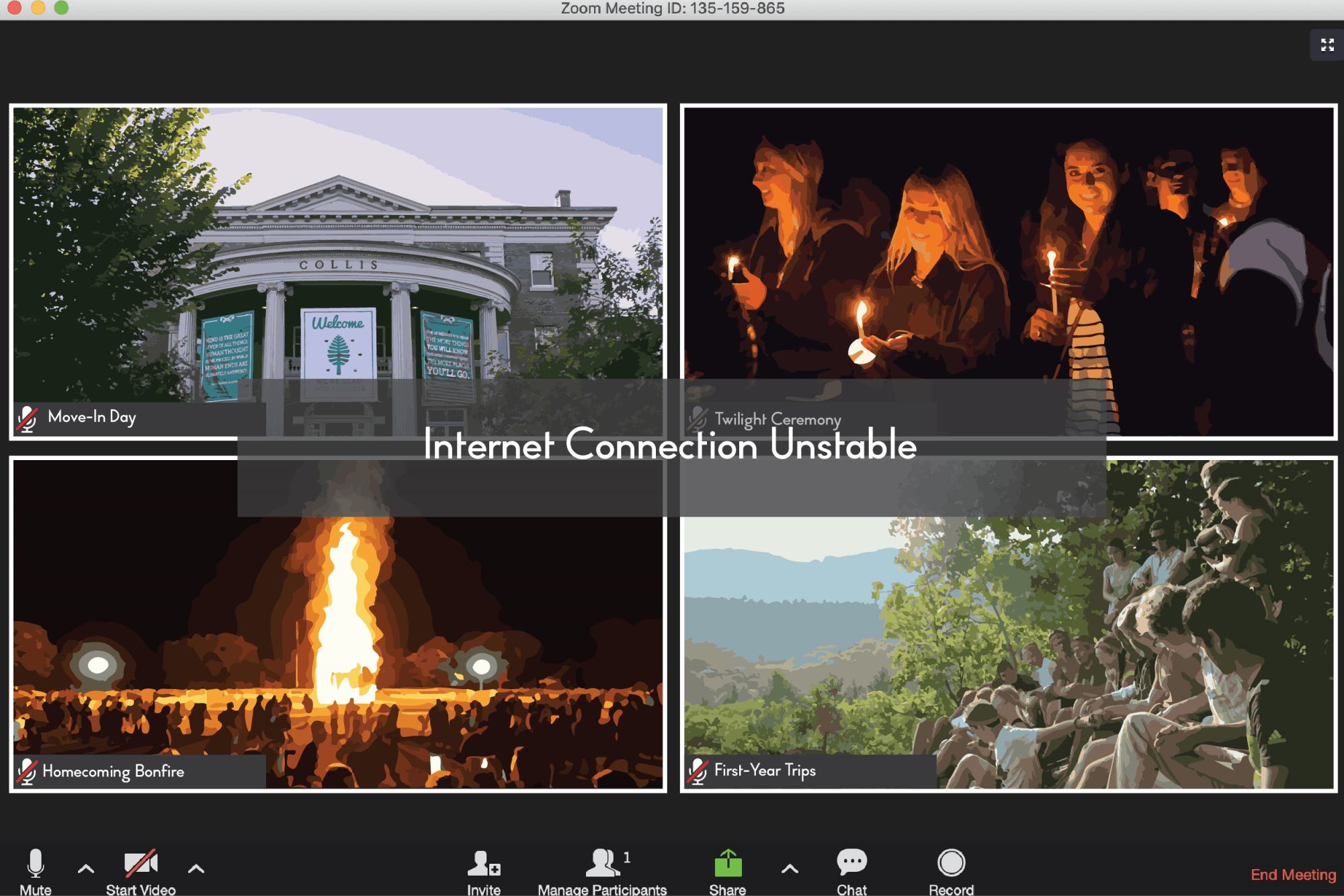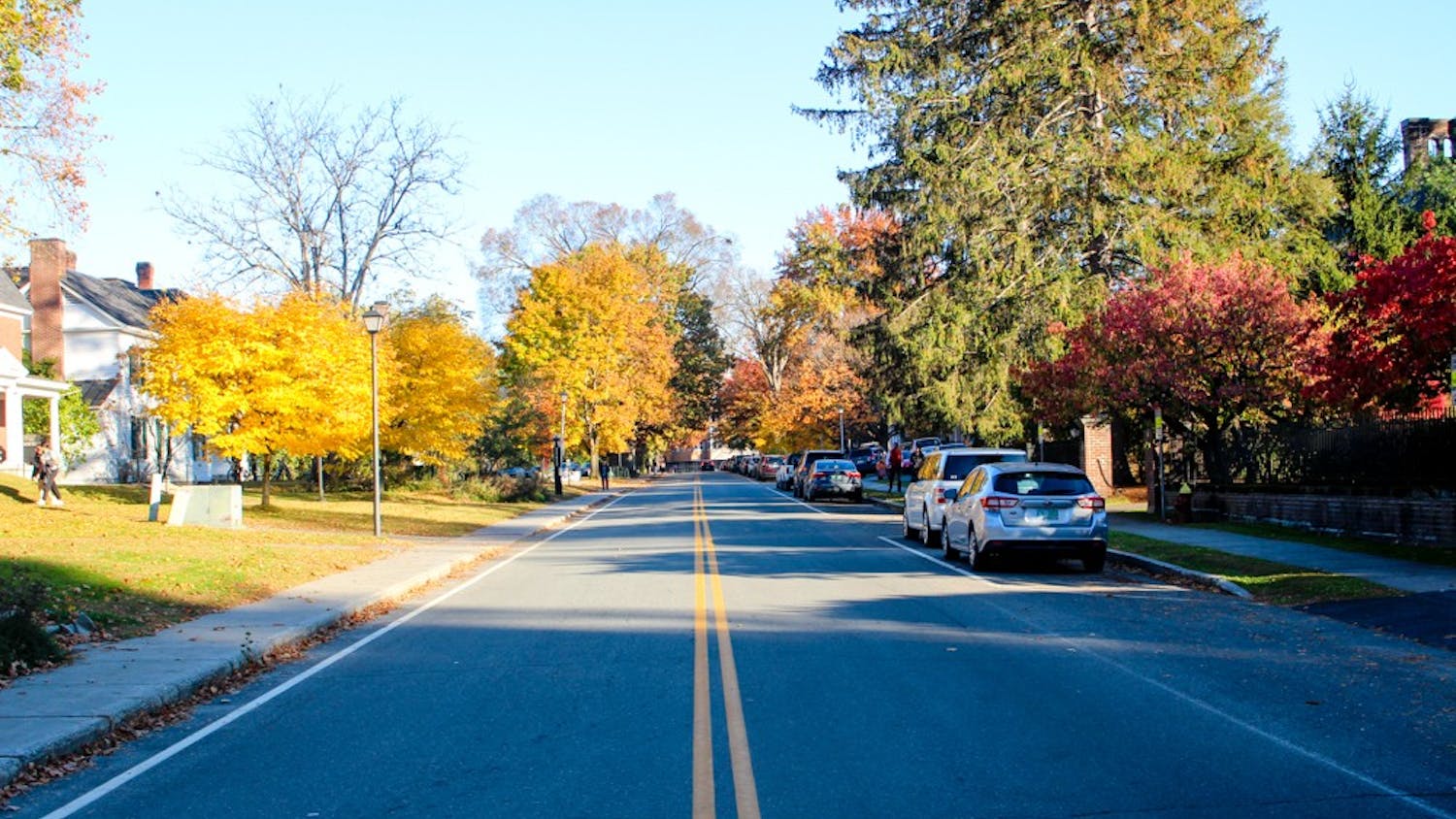You can hear it in the lingo-packed conversations on the Green, see it on the faces of students as they marvel at Hanover’s fall colors and read it in the words of adoration from alumni: Dartmouth is home to a uniquely tight-knit community, the closeness of which stems largely from years of tradition.
The future of Dartmouth traditions became uncertain when COVID-19 disrupted in-person activities, forcing beloved freshman-year rituals to occur virtually for the Class of 2024. Comparing the fall term experiences of current freshmen and classes before them, it’s clear that Dartmouth’s first-year traditions have lost some of their magic over Zoom.
One of the first ceremonies the incoming class at Dartmouth attends is the Twilight Ceremony, which serves as the conclusion to orientation. Prior to this term, the tradition involved lighting candles, walking from Collis to Bema, listening to words of advice from upperclassmen and joining together to sing the Alma Mater.
“Even though it’s all a little overwhelming and daunting,” David Hoffman ’23 said, the Twilight Ceremony gave him “the feeling that there’s something special about [Dartmouth’s] community that’s different than anything else you’ve experienced in your life.”
Taking place near the middle of fall term, Homecoming weekend — and the famous bonfire on the Green — provides another important milestone for freshmen.
These community-building experiences stand in stark contrast to events this fall. While the Twilight Ceremony and the Homecoming bonfire usually draw freshmen and other classes together, many freshmen found the virtual replacements for these traditions disappointing.
Rujuta Pandit ’24 said the Twilight Ceremony felt particularly disheartening.
“I saw videos of what normally happens … and then had to deal with the reality that I didn’t get that, even though I came to Dartmouth and chose Dartmouth expecting a lot of those experiences,” Pandit said, adding that recreating the traditions online rather than adapting them to a virtual format “just made situations sadder.”
Margot Luria ’24 had similar feelings about this year’s Homecoming.
“Frustration was the biggest thing for me because I know what Homecoming normally is,” Luria said. “To be reminded of the fact that we’re not getting that — that the replacement for the entire Homecoming weekend was a video — felt very frustrating.”
Some students believed that Dartmouth should have tried Homecoming formats other than pre-recorded videos. Sidney Marsh ’24 and Alexa Warren ’24 offered some of their own ideas.
“They should’ve let us go on the [Green] or something to physically be there,” Marsh said, in reference to the Homecoming bonfire. “We were just being talked at instead of being engaged in any way.”
Warren agreed that Dartmouth had the ability to make the traditions more interactive and should have done so.
“If they’re allowing other in-person events right now, like movie nights and things like that, I don't get why they couldn’t just do scheduled, socially distanced versions of traditions,” she said.
Many ’24s feel that by attempting to recreate traditions through videos, rather than creatively adapting to the pandemic, Dartmouth is restricting freshmen from forming a class identity. In fact, Ethan Weber ’24 felt that it was wrong for the College to expect students to accept virtual events as a substitute for normal traditions.
“Not having these virtual events would actually acknowledge the fact that we are missing out,” Weber said. “Instead, they make us angry at the administration, rather than feeling connected to each other.”
Some ’24s have also said that the pandemic limits opportunities to enjoy even more casual bonding events. Luria noted that amid confusion around the College’s rules, ’24s find it difficult to form new “traditions” that comply with social distancing requirements.
“We need more clarity with the rules so that we have an opportunity to work within the rules to bond in our class,” Luria said. “If the school would better clarify ... how students are supposed to be acting on campus, that would help ’24s have the ability to create new traditions.”
Despite the letdown on first-year traditions, however, many ’24s remain positive about forming a class community.
“The first-years have been doing a really good job of finding ways to connect on our own, given whatever we can,” Pandit said.
“We’ve gone on walks and figured out different ways to make friends,” Warren added. “We find more joy in the simple things.”
Through walks with friends and other safe forms of connection, perhaps the Class of 2024 will redefine what constitutes a “tradition” in years to come, making these small moments count alongside the old traditions.
Caroline Kramer ‘24 is a Government major and Public Policy minor from Palo Alto, California. She has served as the Photo Editor since the spring of 2022 and previously wrote for the Mirror section.




